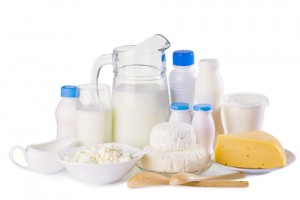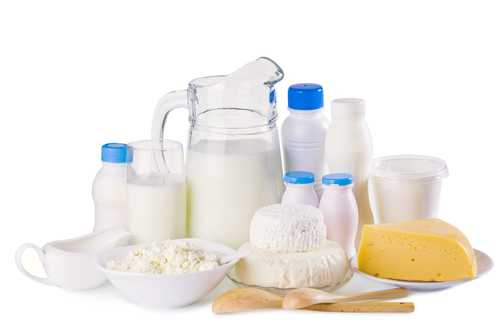 High consumption of high-fat dairy products is associated with a lower risk of developing type 2 diabetes in 23% percent of cases, compared to a diet with a lower consumption of dairy, according to a recent study led by Dr. Ulrika Ericson from the Lund University Diabetes Center, in Malmö, Sweden. The researchers define “high consumption” as eight or more portions per day, while “low consumption” is defined to one or less, as part of their recent findings at this year’s annual meeting of the European Association for the Study of Diabetes (EASD) in Vienna, Austria.
High consumption of high-fat dairy products is associated with a lower risk of developing type 2 diabetes in 23% percent of cases, compared to a diet with a lower consumption of dairy, according to a recent study led by Dr. Ulrika Ericson from the Lund University Diabetes Center, in Malmö, Sweden. The researchers define “high consumption” as eight or more portions per day, while “low consumption” is defined to one or less, as part of their recent findings at this year’s annual meeting of the European Association for the Study of Diabetes (EASD) in Vienna, Austria.
The study was conducted to better understand the effects of primary dietary fat sources in the development of type 2 diabetes as classified according to fat content. “Our findings suggest, that in contrast to animal fats in general, fats specific to dairy products may have a role in prevention of type 2 diabetes,” Dr. Ericson explained.
The study enrolled 26,930 patients, 60% of which were women, between the ages of 45 and 74 years, from the Malmö Diet and Cancer cohort. The data was collected with a modified diet history method, and the researchers conducted a 14-year follow-up, during which 2,860 cases of type 2 diabetes were registered. Results showed that the consumption of eight or more portions a day of high-fat dairy products is associated with a 23% lower incidence of type 2 diabetes for the highest-consuming 20% of participants compared with the lowest-consuming 20%.
Regarding specific high-fat dairy products, the consumption of cream, for instance, which was measured as a median of 30ml or more a day in the highest consuming group, was associated with a 15% reduction in risk of developing type 2 diabetes. High-fat fermented milk, on the other hand, reduces the risk in 20%, when comparing the highest consumers, which means 180ml per day, with non-consumers. In addition, the scientists also observed that a diet with high intakes of meat was associated with increased risk of development of type 2 diabetes, and that the increased risk is higher for lower fat meats.
“Our observations may contribute to clarifying previous findings regarding dietary fats and their food sources in relation to T2D,” said the scientist. “The decreased risk at high intakes of high-fat dairy products, but not of low-fat dairy products, indicate that dairy fat, at least partly, explains observed protective associations between dairy intake and T2D. Meat intake was associated with increased risk of developing diabetes regardless of fat content.”
Despite the results, researchers were not able to establish any relationship between intakes of low-fat dairy products and risk of developing type 2 diabetes. It was already known that dietary fats affect glucose metabolism, as well as insulin, and therefore play an important role in the development of type 2 diabetes. However, this is the first study to explicit the importance of dietary fat content and food sources of fat over a so long period of time.


